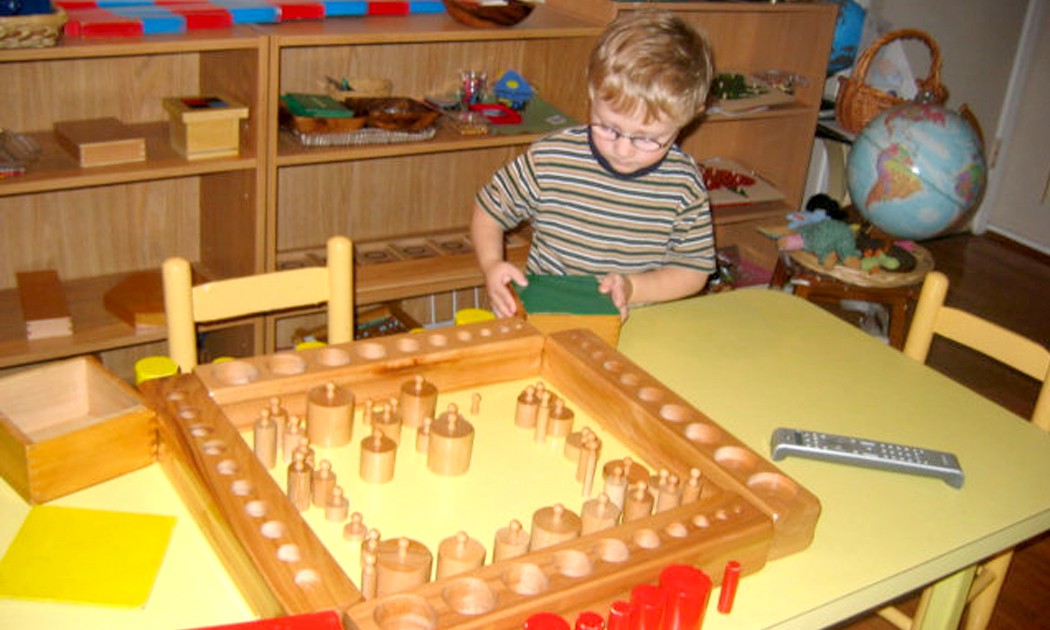-
Sensorial
-
The Sensorial curriculum in Montessori education focuses on the exploration and understanding of a child’s environment. The purpose is mainly to train the senses. Children get into a conscious awareness through different activities, which do not happen in one day, and must go through an elaborate hands-on sensorial exploration. Sensorial materials are designed to isolate each sense, so children can work independently to organize and understand the perception of their environment wherein the child will refine senses by using the sensorial activities and associated materials that are visual, tactile, auditory, gustatory, olfactory, baric, thermic, and stereognostic. Sensorial activities also prepare a child for math, geometry, language, writing, and logical thinking. Every child goes through a sensitive period and it is essential that his/her sensorial need is met at that very specific time without overlooking.
-
- Balance and focus
- Touch and feel
- Perception of smell and taste
- Self regulating/sensory integrating
-
 Pink tower and binomial cube activities
Pink tower and binomial cube activities Sensorial activity includes knob and knobless cylinders
Sensorial activity includes knob and knobless cylinders An assortment of sensorial activities
An assortment of sensorial activities Balancing
Balancing

